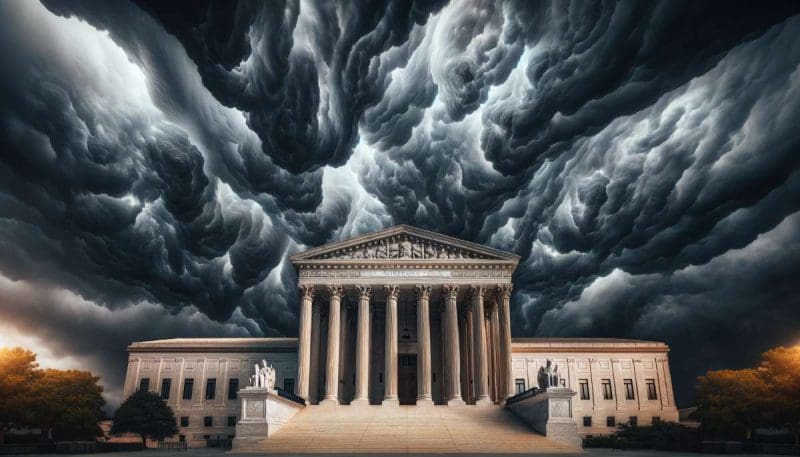
In a move that epitomizes the conservative leanings of the United States Supreme Court, the justices have resoundingly rejected special counsel Jack Smith’s request for an expedited review in the case against former President Donald Trump.
This decision, steeped in judicial reticence, sends ripples through the fabric of American jurisprudence, highlighting a disconcerting inclination towards procedural conservatism at the expense of legal expediency in matters of profound political significance.
A Question of Immunity: Trump’s Teflon Defense
Central to this legal drama is the contentious issue of presidential immunity. Trump’s defense, ensconced in a bastion of questionable legal interpretations, posits that his actions, which many view as a blatant subversion of democratic norms, are somehow protected under the guise of presidential prerogatives. This argument is a testament to the audacity of Trump’s legal strategy, which appears to be less about legal substance and more about obfuscation and delay.
The Art of Legal Stalling: A Trumpian Masterclass
The Supreme Court’s decision, unaccompanied by any discernible explanation, effectively plays into Trump’s hands, granting his legal team a windfall of time. This strategic delay, symptomatic of a broader trend of legal obstructionism perfected by Trump, is a cunning ploy to prolong the legal proceedings. It illustrates a disturbing trend where legal strategies are less focused on justice and more on manipulation of the judicial process.
The Unpredictable Road Ahead: A Maelstrom of Uncertainty
The Supreme Court’s abdication of its role in expediting this critical matter now shifts the spotlight to the DC Circuit Court of Appeals. The previously anticipated March trial now teeters on the brink of uncertainty. This development is a glaring example of how the wheels of justice, when it comes to high-profile political figures, often grind at a frustratingly slow pace, mired in a quagmire of legal technicalities.
The Political Underbelly: A Judicial Tightrope Walk
Trump’s defense, in its plea for judicial caution, thinly veils a strategy steeped in political maneuvering. Their resistance to hastening the judicial process underscores a cynical exploitation of the legal system, using it as a battleground for political machinations rather than a forum for unbiased justice. This case underscores the judiciary’s challenge in remaining impervious to political currents while upholding the principles of law.
Echoes of History: The Ghost of Watergate
In an ironic twist, special counsel Smith’s reference to the Watergate scandal, hoping to draw a parallel to the urgency of the current case, falls on deaf ears. The Supreme Court’s reluctance to take a proactive stance starkly contrasts with its historical intervention during one of America’s most notorious political scandals. This juxtaposition paints a bleak picture of a judiciary that appears more cautious and conservative than its predecessors.
The Waiting Game: A Nation’s Thirst for Accountability
The delay in Trump’s trial transcends mere scheduling; it is emblematic of a deeper malaise in the American judicial system. The postponement echoes a disturbing narrative of justice delayed, and consequently, justice denied. It raises profound questions about the system’s ability to hold powerful political figures accountable, especially when the eyes of a nation yearn for closure and justice.
A Reflection on American Justice: An Uncertain Future
The Supreme Court’s decision is more than a procedural hiccup; it is a reflection of a judiciary that seems increasingly hesitant to wade into politically charged waters. This case is a crucible, testing the mettle of the American legal system, challenging it to uphold its principles amidst a tumultuous political landscape. As the case weaves its way through the appellate court, it remains a poignant reminder of the ongoing struggle to balance legal integrity against the backdrop of political power play.
In summation, the unfolding of this legal saga against Trump, marked by the Supreme Court’s latest decision, is a stark reminder of the challenges facing the American judiciary. It underscores the need for a judicial approach that transcends conservative caution and embraces a more proactive role in matters of national importance. As the nation watches this legal drama unfold, it awaits with bated breath to see whether justice will be served in a case that is as much about the legal system’s integrity as it is about the actions of a former president.
